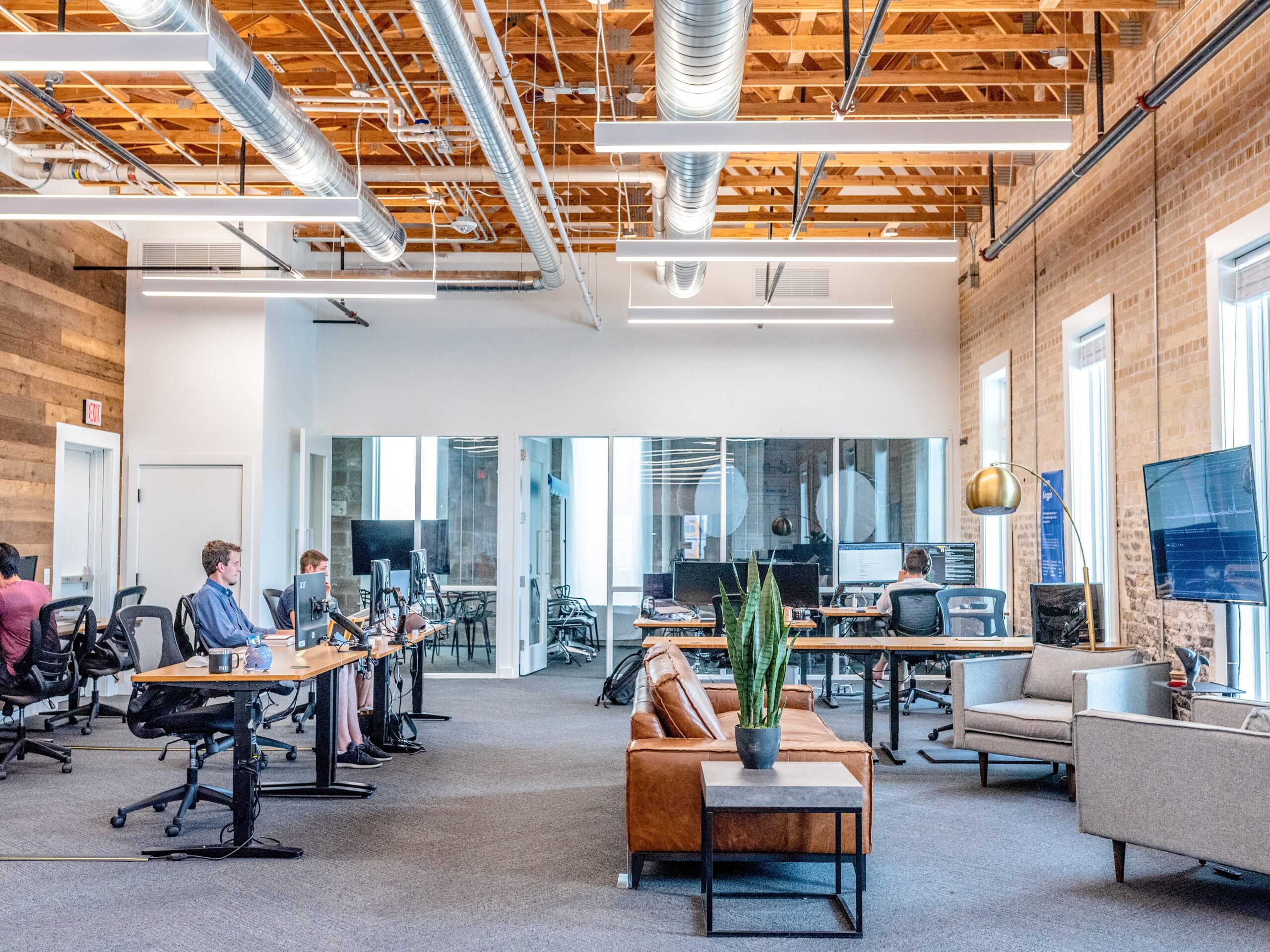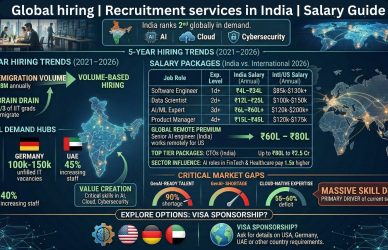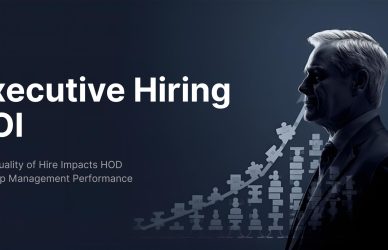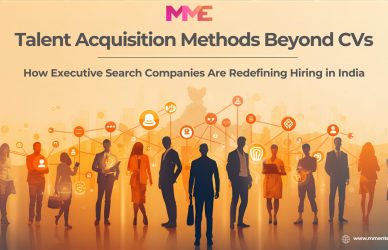Introduction: The Rise of Customization in HR Services
In the ever-evolving business landscape of 2024, Human Resources (HR) has emerged as a key enabler of organizational growth and employee satisfaction. However, the traditional “one-size-fits-all” approach to HR services is rapidly becoming obsolete. Employers are increasingly recognizing the importance of customized HR solutions to address their unique organizational challenges. This rise in demand is driven by factors such as globalization, the need to accommodate a diverse workforce, and the growing influence of technological advancements. Custom HR services are not just a trend but a strategic necessity for businesses looking to stay competitive in today’s dynamic environment.
Why Employers Are Opting for Custom HR Services
Unique Organizational Needs
Every organization has its own culture, goals, and operational challenges. Custom HR services allow businesses to address specific issues, such as talent acquisition for niche roles, specialized training programs, or tailored performance management strategies. This bespoke approach ensures alignment between HR strategies and business objectives.
Adaptation to Globalization
As businesses expand their operations globally, they encounter diverse regulatory environments, cultural differences, and workforce expectations. Custom HR services help organizations navigate these complexities by offering localized solutions that comply with regional labor laws while respecting cultural nuances. This flexibility is crucial for maintaining efficiency and compliance in international markets.
Technological Integration
Advanced HR technologies, such as AI-powered analytics, cloud-based systems, and automated tools, have paved the way for more personalized HR solutions. Employers can now leverage data insights to design HR strategies that address specific employee needs, such as personalized training modules or benefits plans. Customization ensures that technology investments deliver maximum value.
Enhanced Employee Engagement
Employees today expect more than just a paycheck—they want meaningful work experiences, career development opportunities, and benefits that cater to their individual needs. Customized HR services enable organizations to provide personalized engagement strategies, resulting in higher job satisfaction and retention rates.
The Impact of Workforce Diversity on HR Customization
Diverse Talent Pools
The modern workforce is increasingly diverse, comprising employees of different ages, genders, ethnicities, and cultural backgrounds. This diversity necessitates HR policies that are inclusive and adaptable. For instance, flexible work arrangements, cultural sensitivity training, and gender-neutral benefits are becoming essential components of custom HR solutions.
Generational Expectations
The coexistence of multiple generations in the workplace—Baby Boomers, Generation X, Millennials, and Gen Z—creates varying expectations regarding work-life balance, communication styles, and career development. Custom HR services address these differences by tailoring strategies to meet generational preferences, such as tech-driven onboarding for Gen Z or leadership development programs for Millennials.
Global Teams and Remote Work
The rise of remote and hybrid work models has further emphasized the need for customization. HR services now need to cater to geographically dispersed teams with varying time zones, legal requirements, and collaboration tools. Tailored solutions, such as region-specific health benefits or remote team engagement programs, help maintain productivity and connectivity.
Cultural Sensitivity
As workplaces become more multicultural, HR policies must be designed to promote inclusion and respect for diversity. Customized training programs, diversity audits, and inclusive hiring practices ensure that all employees feel valued and supported.
The demand for custom HR services is not just about addressing challenges; it’s about embracing opportunities to create a more agile, inclusive, and employee-centric workplace. By understanding why employers are gravitating toward this approach and the role workforce diversity plays in shaping HR customization, businesses can effectively adapt to the evolving landscape of 2024.

Understanding Customized HR Services
In today’s dynamic business environment, one-size-fits-all solutions no longer suffice, especially in the realm of Human Resources (HR). Customized HR services offer tailored solutions that address the specific needs of an organization, whether it’s recruitment, payroll management, employee engagement, or regulatory compliance. These services empower businesses to align their HR strategies with their unique goals, challenges, and workforce dynamics.
What Are Customized HR Services?
Customized HR services are bespoke solutions designed to cater to the distinct requirements of a business. Unlike standardized HR models, these services consider the organization’s industry, size, culture, and objectives. By tailoring HR processes and policies, businesses can ensure better alignment with their strategic goals.
Personalized Recruitment Strategies
Customized HR services involve creating targeted recruitment plans that focus on sourcing candidates with the right skills, experience, and cultural fit. This approach reduces time-to-hire and improves the quality of new hires.
Tailored Payroll and Benefits Management
Payroll solutions are customized to accommodate specific needs, such as variable pay structures, region-specific tax regulations, or industry-standard benefits packages. This ensures accuracy and compliance while enhancing employee satisfaction.
Employee Engagement and Retention
Tailored HR services also include personalized employee engagement strategies, such as customized recognition programs, career development plans, and flexible work arrangements. These initiatives help foster a motivated and committed workforce.
Compliance Solutions
Organizations operating in multiple regions face diverse regulatory environments. Customized HR services address these challenges by creating localized compliance frameworks that align with regional labor laws and industry standards.
Core Components of Custom HR Services
Recruitment and Talent Acquisition
Recruitment is a cornerstone of customized HR services. Agencies or internal teams create bespoke hiring plans that focus on sourcing the right talent. These plans consider industry-specific requirements, candidate personas, and employer branding strategies. For instance, a tech startup might need a fast-track hiring process, while an established firm may focus on hiring for cultural alignment.
Training and Development
Customized HR services often include tailored training programs to address skill gaps and prepare employees for future roles. These programs may range from technical training for specific job roles to leadership development workshops for potential managers. Personalization ensures that the content is relevant and impactful for the workforce.
Payroll and Benefits Administration
Managing payroll and benefits is another critical aspect of HR services. Customization involves integrating region-specific compliance requirements, industry-standard perks, and individual employee needs, such as flexible benefit plans or customized retirement options. This approach not only ensures compliance but also enhances employee satisfaction.
Compliance Management
Different regions have unique labor laws and regulatory requirements. Customized HR services help businesses develop frameworks to manage compliance across multiple jurisdictions. This includes creating policies for overtime, paid leave, and workplace safety tailored to specific legal landscapes.
Performance Management
A one-size-fits-all performance appraisal system may not resonate with all employees. Customized HR services design evaluation frameworks based on organizational goals, job roles, and individual employee expectations. This fosters a culture of continuous improvement and goal alignment.
Employee Engagement Strategies
Employee engagement is essential for retention and productivity. Tailored strategies, such as customized recognition programs, personalized wellness initiatives, and role-specific engagement activities, ensure that employees feel valued and motivated.
HR Technology Integration
Customized HR services also include the integration of technology tailored to the business’s needs. From cloud-based HR platforms to AI-powered analytics tools, these solutions enhance efficiency and provide actionable insights.
Customized HR services offer a strategic advantage by addressing the unique challenges and opportunities faced by businesses. By focusing on core components such as recruitment, compliance, and employee engagement, these services help organizations create a thriving workforce.

Benefits of Customized HR Services for Employers
Customized HR services are transforming the way businesses manage their workforce. By offering tailored solutions, employers can achieve better alignment between HR strategies and organizational objectives, resulting in significant operational, financial, and employee-focused benefits. From improving employee satisfaction to streamlining HR processes, customized HR services empower businesses to thrive in competitive environments.
Enhanced Employee Satisfaction and Retention
Personalized Benefits and Perks
Employees value benefits that cater to their individual needs. Customized HR services enable employers to offer flexible benefits packages, such as personalized health plans, remote work options, or tailored wellness programs. These initiatives demonstrate an organization’s commitment to employee well-being, fostering loyalty and satisfaction.
Career Development Opportunities
Tailored training and development programs help employees enhance their skills and grow professionally. Customized HR services ensure that these opportunities align with individual career aspirations, boosting morale and engagement while reducing turnover.
Improved Work-Life Balance
By addressing unique employee preferences, such as flexible work schedules or remote work options, businesses create a supportive work environment. This focus on work-life balance contributes to higher job satisfaction and long-term retention.
Recognition and Rewards
Customized HR services often include personalized recognition programs. Celebrating individual achievements through targeted rewards, whether monetary or non-monetary, enhances employee motivation and strengthens their connection to the organization.
Streamlined HR Processes
Efficient Talent Acquisition
Recruiting the right talent can be time-consuming and costly. Customized HR services optimize recruitment strategies by leveraging targeted sourcing, role-specific screening, and tailored onboarding processes. This approach ensures faster hiring and better cultural alignment.
Centralized HR Operations
Customized HR services integrate various HR functions, such as payroll, benefits administration, and performance management, into a unified system. This centralization reduces administrative burdens and improves efficiency, allowing HR teams to focus on strategic initiatives.
Advanced Technology Utilization
Customized HR services often incorporate AI-driven tools and analytics platforms to automate repetitive tasks, such as payroll calculations or performance tracking. This reduces errors, saves time, and provides actionable insights to improve decision-making.
Scalable Solutions
Tailored HR services grow with the organization. Whether a business is a startup or an established enterprise, these services can be adjusted to meet changing workforce demands, ensuring seamless operations during expansion or restructuring.
Compliance and Risk Mitigation
Adherence to Local Laws
Navigating the complexities of employment laws across regions can be challenging. Customized HR services ensure compliance with local labor laws, tax regulations, and industry standards. This minimizes the risk of legal disputes and penalties.
Proactive Risk Management
With tailored HR policies, organizations can address potential risks proactively. For example, customized employee handbooks, workplace safety protocols, and anti-discrimination policies mitigate risks and promote a safe and inclusive work environment.
Accurate Documentation and Reporting
Compliance requires meticulous record-keeping and timely reporting. Customized HR services provide tools and support to maintain accurate records, such as employee contracts, tax filings, and performance evaluations. This ensures readiness for audits and inspections.
Cultural and Regional Sensitivity
For organizations operating globally, understanding and respecting cultural and legal differences is crucial. Customized HR services provide localized solutions that comply with regional standards while accommodating cultural nuances, enhancing the organization’s reputation and employer brand.
Employers leveraging customized HR services benefit from enhanced employee satisfaction, streamlined processes, and robust compliance frameworks. These tailored solutions not only address unique organizational needs but also position businesses for sustainable success.

Key Areas of Customization in HR Services
Customization in HR services is transforming how organizations manage their workforce. Every business has unique goals, challenges, and workforce dynamics, which demand tailored HR solutions to ensure alignment with their needs. From recruitment to payroll and beyond, this section explores the key areas where customization significantly impacts organizational efficiency and employee satisfaction.
Tailored Recruitment and Talent Acquisition
Role-Specific Hiring Strategies
Customized HR services design recruitment strategies specific to the roles being filled. For example, hiring for technical roles might involve skills-based assessments, while leadership roles may focus on cultural fit and strategic vision.
Industry-Specific Expertise
Recruitment customization often takes industry requirements into account. For example, an IT company may prioritize candidates with niche technical skills, while healthcare organizations might seek professionals with certifications and compliance knowledge.
Streamlined Sourcing Methods
Tailored sourcing strategies utilize platforms and channels where the desired talent is most active. For instance, using social media and industry forums for creative roles or specialized job boards for engineering professionals ensures a higher chance of success.
Enhanced Candidate Experience
Customized recruitment processes create a positive impression on potential employees. Personalizing communication, interview schedules, and feedback enhances the candidate experience, making the organization more attractive to top talent.
Personalized Employee Onboarding
Role-Specific Onboarding Programs
Every role comes with its unique requirements. Custom HR services ensure that onboarding programs are designed to equip employees with the specific tools, resources, and knowledge they need for success in their roles.
Cultural Integration
Tailored onboarding helps new hires assimilate into the organization’s culture. This may include personalized mentorship programs, team-building activities, or orientation sessions aligned with the company’s values and mission.
Flexible Onboarding Formats
With remote and hybrid work models gaining traction, onboarding processes must adapt to various formats. Customized HR services can design virtual onboarding for remote teams or hybrid sessions for mixed work environments, ensuring inclusivity and consistency.
Feedback-Driven Improvements
Customization often involves iterative improvement. By gathering feedback from new hires, HR teams can refine onboarding processes to better meet the needs of future employees, creating a continuous cycle of enhancement.
Customized Payroll and Benefits Administration
Location-Specific Payroll Management
For organizations with a global presence, payroll customization ensures compliance with regional tax laws, labor regulations, and currency considerations. This eliminates errors and ensures timely salary disbursements.
Flexible Benefits Packages
Employees value benefits that cater to their individual needs. Customized HR services allow organizations to offer flexible benefits plans, such as healthcare options, wellness programs, or retirement savings schemes, that employees can tailor to their preferences.
Payroll Automation and Integration
Tailored payroll systems integrate seamlessly with existing HR platforms, automating repetitive tasks such as tax calculations, overtime payments, and deductions. This reduces administrative burdens and minimizes errors.
Equitable Compensation Structures
Custom HR services design pay structures that are fair and competitive. By benchmarking salaries against industry standards and accounting for role-specific contributions, businesses can attract and retain top talent while maintaining internal equity.
By focusing on tailored recruitment, personalized onboarding, and customized payroll management, businesses can create HR solutions that are aligned with their goals and workforce needs. These key areas of customization not only enhance operational efficiency but also foster a more satisfied and engaged workforce.

Technology and Tools Driving HR Customization
In an era where personalization is key, technology plays a vital role in enabling businesses to customize their HR strategies. From artificial intelligence to sophisticated HR management systems, these tools empower organizations to address specific workforce needs, enhance employee satisfaction, and improve overall efficiency. This section explores how advanced technologies like AI, machine learning, and cloud-based platforms are driving the shift toward personalized HR solutions.
AI in HR Customization
Automated Recruitment Processes
Artificial Intelligence (AI) revolutionizes talent acquisition by automating repetitive tasks such as resume screening, candidate matching, and initial interviews. AI-driven tools analyze job descriptions and candidate profiles to identify the best matches, saving time and ensuring a higher quality of hire.
Predictive Analytics for Workforce Planning
AI-powered predictive analytics allow HR teams to anticipate workforce trends and needs. By analyzing historical data, these tools can forecast attrition rates, identify skill gaps, and recommend personalized training programs, enabling proactive HR planning.
Personalized Employee Experiences
AI enables hyper-personalization in HR services by analyzing employee data to create tailored solutions. For instance, AI chatbots provide instant, customized responses to employee queries, while AI-driven platforms recommend personalized learning paths and career development plans.
Employee Sentiment Analysis
AI tools can monitor employee sentiment through surveys, feedback forms, and communication platforms. By analyzing this data, HR teams can gauge morale, identify pain points, and implement strategies to address individual and group concerns.
Role of HR Management Systems in Personalization
Integrated HR Platforms
Modern HR management systems (HRMS) integrate multiple HR functions, such as payroll, performance management, and benefits administration, into a single platform. This integration allows businesses to access comprehensive employee data, enabling customized HR solutions.
Cloud-Based Flexibility
Cloud-based HR platforms offer flexibility and scalability, making it easier for organizations to adapt their HR strategies as they grow. These systems provide access to real-time data and allow customization of HR processes based on location, role, and workforce composition.
Performance Management and Goal Setting
HRMS tools allow for personalized performance evaluations by incorporating role-specific KPIs and feedback mechanisms. Managers can set individual goals, track progress, and provide tailored feedback, fostering a culture of continuous improvement.
Customized Benefits Administration
Benefits modules within HRMS platforms enable employees to choose benefits that suit their needs. These tools also allow HR teams to design flexible benefits packages, offering a competitive advantage in attracting and retaining talent.
Data-Driven Insights
HRMS platforms provide analytics dashboards that visualize key HR metrics, such as employee engagement, retention rates, and diversity statistics. These insights help HR professionals customize policies and programs to meet organizational and employee needs effectively.
Technology is transforming HR customization into a seamless and efficient process. With AI driving intelligent automation and HR management systems enabling comprehensive personalization, businesses can tailor their HR strategies to align with specific goals and workforce dynamics. By leveraging these advanced tools, organizations not only enhance operational efficiency but also create a more engaged and satisfied workforce.

Challenges in Implementing Customized HR Services
While customized HR services offer numerous benefits, their implementation often presents challenges that organizations must navigate carefully. From budget constraints to technological hurdles, these obstacles can impact the effectiveness and adoption of personalized HR solutions. This section explores key challenges such as cost implications, data privacy concerns, and integration complexities.
Cost Implications of Customization
Initial Investment
Developing and implementing customized HR solutions requires significant upfront investment. From purchasing advanced HR technologies to hiring experts for design and implementation, the costs can strain budgets, especially for small and medium-sized enterprises (SMEs).
Ongoing Maintenance and Upgrades
Custom solutions often require regular updates to remain effective and compliant with changing regulations or business needs. The cost of maintenance, software licensing, and continuous training for HR teams can add up over time.
Scalability Concerns
Custom solutions may need to be restructured or expanded as the organization grows, leading to additional costs. Businesses must plan for scalability from the outset to avoid expensive overhauls in the future.
Data Privacy and Security Concerns
Handling Sensitive Employee Information
Customized HR services often involve collecting and storing large volumes of sensitive employee data, such as personal details, salary information, and performance records. Ensuring this data is protected from breaches is a critical concern.
Compliance with Privacy Regulations
Organizations must adhere to stringent data privacy laws such as GDPR or local labor regulations when implementing customized HR solutions. Non-compliance can lead to legal penalties and reputational damage.
Cybersecurity Risks
The use of cloud-based HR systems and AI-driven platforms increases exposure to cyber threats. Businesses must invest in robust cybersecurity measures, such as encryption, multi-factor authentication, and regular vulnerability assessments, to safeguard employee data.
Integration with Existing Systems
Compatibility Issues
Integrating new customized HR tools with legacy systems can be a complex process. Incompatibilities may lead to system inefficiencies, data discrepancies, or the need for costly system overhauls.
Change Management
Employees and HR teams may resist adopting new systems due to a lack of familiarity or perceived complexity. Effective training and communication are essential to ensure smooth transitions and widespread adoption.
Workflow Disruptions
Implementation phases, such as data migration and system testing, can temporarily disrupt existing HR workflows, affecting productivity and service quality. Businesses must plan carefully to minimize downtime.
While these challenges can complicate the implementation of customized HR services, addressing them proactively through careful planning, investment in technology, and adherence to best practices can pave the way for successful adoption.

Case Studies: Success Stories of Customized HR Services
Customized HR services have proven to be game-changers for organizations across industries. By tailoring HR solutions to address specific challenges, businesses have achieved significant improvements in employee satisfaction, operational efficiency, and overall growth. This section highlights real-life examples of companies that successfully implemented personalized HR strategies.
How Customization Transformed a Mid-Sized Tech Firm
A mid-sized technology company faced challenges in retaining skilled employees due to limited career development opportunities and a lack of personalized engagement strategies. Recognizing the need for change, the firm partnered with an HR consultancy to implement customized solutions.
Tailored Training Programs
The company introduced role-specific training programs to help employees develop technical and leadership skills. Personalized learning paths, designed using AI-driven insights, ensured that each employee received training aligned with their career goals.
Flexible Work Arrangements
To address work-life balance concerns, the firm customized its HR policies to include flexible work hours and remote work options. This change significantly boosted employee morale and productivity.
Recognition and Rewards
A tailored employee recognition program was launched, focusing on both team-based and individual achievements. Personalized rewards, such as skill-development opportunities or additional time off, resonated well with employees.
Outcome: Within a year, employee turnover dropped by 25%, and engagement scores increased by 40%. The company also reported a significant improvement in project delivery timelines and quality.
Retail Industry Success with Tailored HR Solutions
A global retail chain struggled to manage its geographically dispersed workforce, which included part-time, full-time, and seasonal employees. The chain partnered with an HR service provider to develop customized solutions for managing its diverse workforce.
Customized Scheduling System
A tailored scheduling system was introduced to accommodate varying shift patterns and employee preferences. The system used predictive analytics to optimize schedules based on peak business hours and employee availability.
Localized Benefits Packages
The company implemented region-specific benefits packages to align with local labor laws and cultural expectations. For example, employees in certain regions received transportation allowances, while others were offered childcare support.
Enhanced Onboarding Process
A personalized onboarding program was created for different employee types. Seasonal workers received quick-start guides, while full-time staff underwent comprehensive training tailored to their roles.
Outcome: The company achieved a 20% reduction in scheduling conflicts, improved compliance with local labor regulations, and saw a 30% increase in workforce satisfaction. Seasonal worker retention also improved, saving significant recruitment costs in subsequent hiring cycles.
These success stories highlight the tangible benefits of customized HR services in addressing specific organizational challenges, driving employee engagement, and enabling sustainable growth.

Future Trends in Customized HR Services for Employers
As businesses evolve, so do their approaches to managing human resources. Customized HR services are no longer just about tailored benefits or flexible work arrangements; they are becoming deeply integrated with emerging technologies and strategic business goals. The future of HR customization revolves around hyper-personalization, predictive analytics, and a heightened focus on employee experience. These trends promise to redefine how organizations attract, retain, and develop their workforce.
Hyper-Personalization in HR
AI-Driven Personalization
Hyper-personalization leverages artificial intelligence (AI) to create highly individualized HR solutions. For example, AI algorithms analyze employee data to offer customized learning paths, benefits plans, and career progression strategies. This level of personalization ensures that employees receive solutions tailored to their unique preferences and aspirations.
Dynamic Work Arrangements
As remote and hybrid work models continue to thrive, hyper-personalization will focus on offering flexible arrangements that cater to individual needs. Employees may have the freedom to choose their work hours, preferred collaboration tools, or even project assignments based on their skills and interests.
Real-Time Employee Feedback
Future HR systems will incorporate real-time feedback mechanisms, enabling managers to address employee concerns and preferences instantly. Hyper-personalized feedback loops will create a more responsive and employee-centric workplace.
Predictive Analytics for Workforce Management
Anticipating Workforce Trends
Predictive analytics uses historical and real-time data to forecast workforce trends, such as turnover rates, skill shortages, or training needs. These insights help organizations proactively address challenges before they escalate, ensuring a smoother HR management process.
Optimizing Talent Acquisition
By analyzing hiring trends and market data, predictive analytics enables HR teams to identify the best talent sources and recruitment strategies. It also helps predict candidate success rates based on their skills, past performance, and cultural fit.
Enhancing Employee Performance
Future HR systems will use predictive models to identify high-performing employees and those at risk of disengagement. This enables HR teams to implement targeted interventions, such as mentorship programs or workload adjustments, to optimize employee performance and satisfaction.
Strategic Workforce Planning
Predictive analytics supports long-term planning by forecasting workforce needs based on business growth, market conditions, and industry trends. This ensures that organizations are equipped with the right talent at the right time.
The Role of Employee Experience in HR Customization
Experience-Driven Strategies
Future HR customization will prioritize the employee experience, focusing on creating a seamless and engaging journey from onboarding to career development. This includes personalized onboarding processes, recognition programs, and tailored career advancement plans.
Holistic Well-Being Initiatives
Organizations will increasingly adopt customized wellness programs that address physical, mental, and financial well-being. These initiatives may include stress management workshops, telehealth services, and personalized retirement plans to meet individual needs.
Technology-Enhanced Interactions
Augmented and virtual reality (AR/VR) will play a role in enhancing the employee experience. For instance, AR/VR tools could be used for immersive onboarding sessions or virtual team-building activities, creating a more engaging and memorable experience.
Employee-Centric Platforms
HR technology will evolve to provide employees with more control over their experience. Self-service portals and mobile apps will allow employees to customize their benefits, track performance goals, and access training materials at their convenience.
The future of customized HR services lies in the seamless integration of advanced technologies and employee-focused strategies. By embracing hyper-personalization, leveraging predictive analytics, and enhancing the employee experience, organizations can create dynamic HR solutions that drive engagement, productivity, and long-term success.

Conclusion: Embracing Customization for a Competitive Edge
The Necessity of Personalization in HR
In 2024, the growing complexity of business demands personalized HR services. Tailored solutions align HR strategies with organizational goals, fostering compliance, employee satisfaction, and sustainable growth.
Steps Toward Implementation
Employers can embrace customization by assessing unique workforce needs, investing in advanced technologies, and collaborating with HR experts. Prioritizing employee-centric approaches and scalable systems ensures a seamless transition to personalized HR solutions. By doing so, organizations can secure a competitive edge in today’s dynamic business environment, cultivating an engaged, high-performing workforce.




